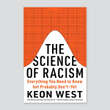Human skills fall into three major buckets: physical, intellectual, and emotional. Of these, the last two are critical differentiators of talent across all knowledge economy jobs.
When it comes to intellectual skills, such as learning ability, a century of scientific evidence reveals that this trait is the most consistent predictor of job performance and career success across all occupations. Why? Because it predicts how fast and well you can learn, reason, and solve problems, which basically matters in every job.
That said, intellectual skills are clearly not enough to do well in your job or career. In fact, most jobs will also require you to understand, influence, and manage yourself and other people, and these intrapersonal and interpersonal skills are typically encapsulated under the label of emotional intelligence (EQ).
How can you assess the EQ of artificial intelligence?
Just like with humans, AI’s potential can also be assessed in terms of its intellectual and emotional skills or capabilities.
Intellectual skills include the ability to solve problems, retrieve knowledge, and translate expertise into the creation or generation of new content (e.g., poems, jokes, code, music, images, and a new corporate strategy). When people assess how intelligent AI is, they generally focus on these types of problems and pitch AI against human expertise or intelligence.
Emotional skills, though far less discussed, are perhaps even more impressive.
While it seems counterintuitive to think of AI as capable of displaying EQ, a simple examination of any generative AI tool (e.g., ChatGPT, Perplexity, and Claude) will show that AI is already better than many humans at both managing itself and others, which includes the ability to understand humans, and help us boost our own EQ.
4 ways AI’s emotional intelligence can help human managers
This is how AI could help managers to improve their ability to manage themselves and others, thereby improving their managerial and leadership effectiveness, and helping their teams to be happier and more productive:
1. Real-Time Sentiment Analysis in Communication
AI tools can analyze the tone, sentiment, and emotional content of emails, chat messages, and meeting transcripts. Managers can receive insights on whether their communication comes across as empathetic, assertive, or dismissive. Since the choice of words has a big impact on others’ evaluations and inferences of our emotional states and intentions, AI can decode and predict how our communicational patterns influence others and help us fine-tune our message, especially when we are managing people. For example, AI can flag overly harsh phrasing or suggest more empathetic alternatives, helping managers improve their interactions, which effectively makes them seem more emotionally intelligent with others.
2. Employee Mood and Engagement Monitoring
AI can analyze a manager’s behavior, such as feedback given during meetings or decision-making patterns, and provide tailored coaching tips. Soon, such tools will be embedded in most videoconferencing platforms, providing managers real feedback about their teams’ emotional and psychological states, helping them to run more engaging meetings. Algorithmic readings of employees’ reactions to managers’ comments may provide managers with real-time markers of their employees’ energy, engagement, interest, curiosity, or indeed boredom levels. AI might suggest practicing active listening techniques if the manager frequently interrupts or advise on better conflict resolution strategies based on observed patterns.
3. Role-Playing and Virtual EQ Training
AI-powered virtual reality (VR) simulations or chatbots can help managers practice challenging conversations, such as delivering critical feedback or resolving team conflicts, something most managers struggle with. Even using simple large language platforms can help managers treat AI as their personal digital coach and sounding board, asking uncomfortable personal questions about how best to handle emotionally charged or socially challenging situations. These tools create safe environments for managers to build empathy and develop skills like de-escalating tension, reading nonverbal cues, and handling emotional reactions.
4. Diversity and Inclusion Insights
AI can detect unconscious biases in decision-making, hiring, or team dynamics by analyzing historical patterns or behaviors. For example, managers may inadvertently use derogatory language when speaking to outgroup or lower status candidates, or respond faster to employees who belong to their same group or tribe. By identifying areas where a manager may unintentionally favor certain employees or overlook others, AI can guide them to foster a more inclusive and equitable workplace, reducing bias, increasing fairness, and strengthening their empathy and interpersonal skills.
These examples show how AI can be a valuable tool for managers looking to build stronger connections, communicate more effectively, and lead with empathy. To be sure, many managers may feel they don’t need AI—or any human coach—to improve their emotional and social competence, which may itself signal deficits around EQ, a trait that is critical for self-awareness; and, the certainty that AI will never be able to replace you because your skills are never going to be rivaled by AI is mostly indicative of arrogance, delusional grandiosity, and overconfidence, all of which are common in lower EQ individuals.
Likewise, it is feasible to think that those who already display higher levels of EQ will leverage emotional AI to refine and upgrade their social and emotional skills even further—a decision that would signal higher levels of IQ or intelligence, too.










No comments